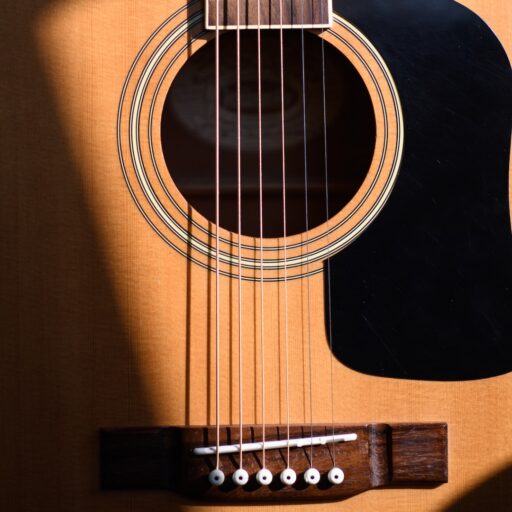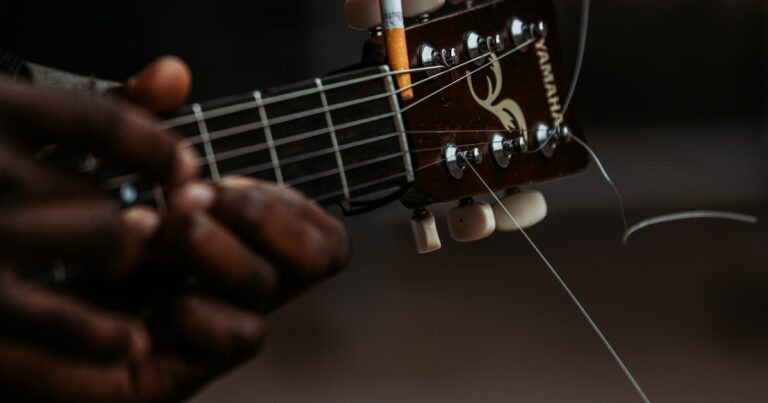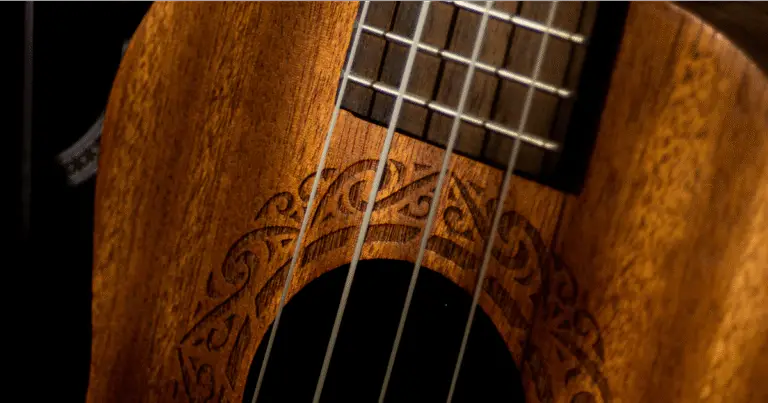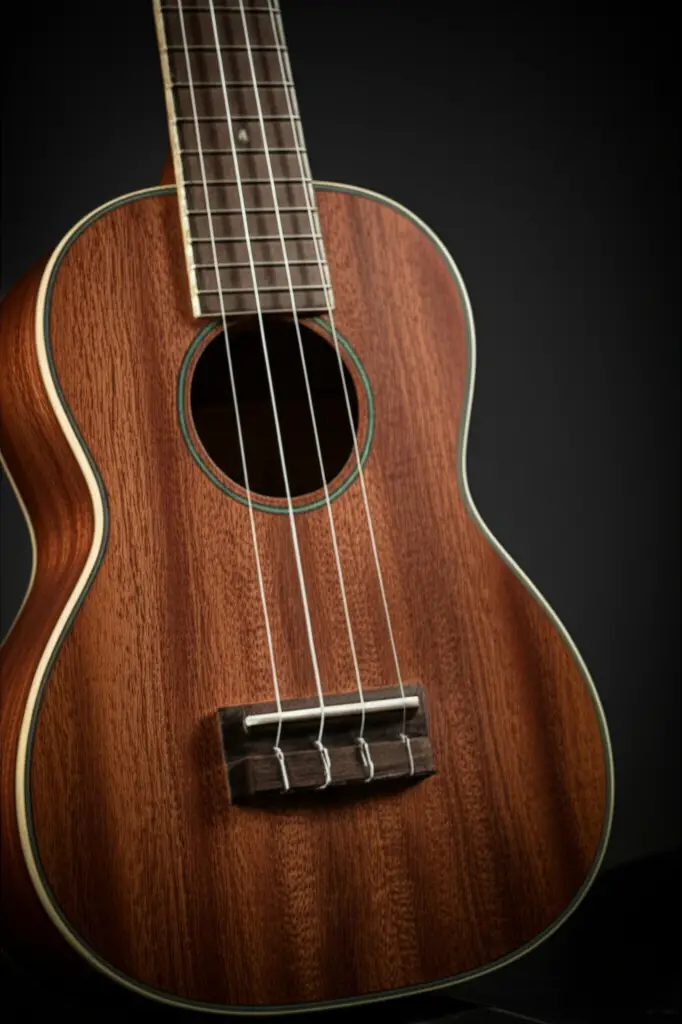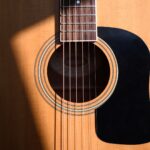Support our educational content for free when you purchase through links on our site. Learn more
Is It Easier to Learn Guitar or Ukulele? 14 Things to Know 🎸🪕 (2026)
Choosing between guitar and ukulele as your first instrument can feel like standing at a musical crossroads. Both promise the joy of strumming your favorite songs, but which one actually makes learning easier—and faster? Spoiler alert: the answer isn’t as simple as you might think! From finger comfort and chord complexity to portability and sound style, we break down 14 essential factors that will help you decide which instrument suits your personality, goals, and lifestyle best.
Did you know that the ukulele’s nylon strings are so gentle that many beginners can start playing songs within just a week? Meanwhile, guitar players often spend a bit more time building finger strength but unlock a world of musical versatility. Intrigued? Keep reading to discover why some beginners swear by the ukulele’s friendly learning curve, while others find the guitar’s rich sound and expressive power irresistible. Plus, we share our top beginner instrument picks and insider tips to get you playing confidently in no time.
Key Takeaways
- Ukulele is generally easier to start with due to fewer strings, softer nylon strings, and smaller size, making it ideal for quick wins and portability.
- Guitar offers greater versatility and a richer sound, but requires more finger strength and a steeper learning curve.
- Your musical goals and personal preferences should guide your choice more than perceived difficulty.
- Consistent practice and quality instruments are key to success on either instrument.
- Check out our top beginner recommendations for both ukuleles and guitars to kickstart your journey!
Table of Contents
- ⚡️ Quick Tips and Facts About Learning Guitar vs Ukulele
- 🎸🎶 The Origins and Evolution of Guitar and Ukulele: A Musical Background
- 🤔 Step #1: What’s Your Musical Personality? Choosing Between Guitar and Ukulele
- 💰 Step #2: Budget Breakdown — How Much Will Your Musical Journey Cost?
- 🔍 Step #3: Comparing the Learning Curves — Guitar vs Ukulele for Beginners
- 🎵 Step #4: Sound, Style, and Song Choices — Which Instrument Fits Your Taste?
- 🖐️ Step #5: Physical Factors — Size, Finger Dexterity, and Comfort Considerations
- 📚 Step #6: Learning Resources and Community Support for Guitar and Ukulele
- 🎯 Step #7: Setting Realistic Goals — What Can You Expect to Achieve and When?
- 🔥 7 Reasons Why the Ukulele Might Be Easier to Learn Than Guitar
- ⚔️ 7 Reasons Why Guitar Could Be the Better Choice Despite Its Complexity
- 🎁 My Top Ukulele Pick for Absolute Beginners
- 🎸 My Top Guitar Pick for Beginners Ready to Rock
- 📖 Not Sure What’s Next? Grab This Free Ukulele Lesson Book to Kickstart Your Journey
- 💡 Tips and Tricks to Stay Motivated While Learning Guitar or Ukulele
- 🎤 Real Stories from Beginners: Guitar vs Ukulele Learning Experiences
- 🔧 Maintenance and Care: Keeping Your Guitar or Ukulele in Top Shape
- 🎯 Final Thoughts: Which Instrument Is Truly Easier to Learn?
- 🔗 Recommended Links for Guitar and Ukulele Learners
- ❓ Frequently Asked Questions About Learning Guitar and Ukulele
- 📚 Reference Links and Further Reading
⚡️ Quick Tips and Facts About Learning Guitar vs Ukulele
Welcome to the ultimate showdown between two of the most beloved stringed instruments: the guitar and the ukulele! Whether you’re eyeing your first chord or just curious about which instrument will get you strumming faster, we at Guitar Brands™ have your back with some quick, no-nonsense facts to kickstart your journey.
| Aspect | Ukulele | Guitar |
|---|---|---|
| Number of Strings | 4 (usually nylon) | 6 (steel or nylon) |
| Size | 21-26 inches (super portable) | 38-41 inches (full size) |
| Fret Count | 12-19 | 19-24 |
| String Tension | Low (easier on fingers) | Medium to high (steel strings) |
| Typical Beginner Price | Affordable (~$80-$150) | Wider range (~$150-$500+) |
| Learning Curve | Gentle but still needs practice | Steeper but more versatile |
| Popular Genres | Folk, pop, Hawaiian, indie | Rock, blues, jazz, country |
| Portability | ✅ Ultra portable | ❌ Bulkier, less travel-friendly |
| Finger Comfort | ✅ Nylon strings = less pain | ❌ Steel strings = initial soreness |
Pro tip: The ukulele’s nylon strings are kinder to your fingertips, especially if you’re just starting out or have sensitive hands. But don’t be fooled—both instruments require consistent practice to master!
If you want to dive deeper into ukulele basics, check out our comprehensive ukulele guide.
🎸🎶 The Origins and Evolution of Guitar and Ukulele: A Musical Background

Before you pick your weapon of choice, let’s take a quick stroll through history. Understanding where these instruments come from can shed light on their unique characteristics and why they feel the way they do in your hands.
The Guitar: A Global Icon
The guitar’s roots trace back over 4,000 years, evolving from ancient stringed instruments like the lute and oud. The modern six-string guitar, as we know it, took shape in 19th-century Spain with luthiers like Antonio Torres innovating its design. Today, guitars come in countless varieties—acoustic, electric, classical—each with its own personality.
The Ukulele: A Hawaiian Gem with Portuguese Roots
The ukulele was born in the late 19th century when Portuguese immigrants brought small stringed instruments called machetes to Hawaii. The Hawaiians embraced and transformed it into the ukulele, meaning “jumping flea” — a nod to the quick finger movements needed to play it. Its compact size and cheerful tone made it a staple in Hawaiian music and beyond.
Why Does This Matter?
- The guitar’s larger size and steel strings reflect its role in diverse music genres demanding range and volume.
- The ukulele’s smaller size and nylon strings make it ideal for portability and gentle play, perfect for casual jamming or beginners.
Curious how these differences impact your learning curve? Keep reading!
🤔 Step #1: What’s Your Musical Personality? Choosing Between Guitar and Ukulele
Ask yourself: What kind of music do I want to play? What vibe am I going for? Your musical personality is the compass that will guide your choice.
Are You a…
- Beachy, laid-back strummer? The ukulele’s bright, breezy sound is your soulmate.
- Rock or blues enthusiast? The guitar’s versatility and power will fuel your passion.
- Singer-songwriter? Both instruments work, but guitar offers more chord variety.
- Traveler or minimalist? Ukulele’s portability wins hands down.
Personal Story from the Team
Our lead guitarist, Mike, started on a ukulele just for fun during college. “It was love at first strum,” he says. But when he wanted to dive into blues and rock, he switched to guitar and never looked back. Meanwhile, Sarah, our ukulele specialist, swears by its simplicity and portability for songwriting on the go.
Bottom line: Your motivation and musical goals matter more than the instrument’s specs.
💰 Step #2: Budget Breakdown — How Much Will Your Musical Journey Cost?
Money talks, and it’s a big factor in choosing your first instrument. Let’s break down what you can expect to spend and what you get for your buck.
| Item | Ukulele | Guitar |
|---|---|---|
| Beginner Instrument Price | $80 – $150 | $150 – $500+ |
| Accessories (case, tuner) | $20 – $50 | $50 – $100+ |
| Lessons (online or in-person) | $0 – $50/month | $0 – $70/month |
| Maintenance (strings, setup) | Low | Moderate |
Why Guitars Can Cost More
- Larger size means more material and craftsmanship.
- Steel strings require more frequent replacement.
- More complex hardware (tuners, bridges) adds cost.
Ukulele: The Budget-Friendly Starter
- Nylon strings last longer and are cheaper.
- Smaller size means less material cost.
- Great starter instrument for kids and casual players.
Pro tip: Don’t skimp on quality! A cheap guitar or ukulele can be frustrating to play and slow your progress. Brands like Cordoba and Kala offer excellent beginner ukuleles, while Yamaha and Fender provide solid beginner guitars.
👉 CHECK PRICE on:
- Cordoba 15CM Concert Ukulele: Amazon | Sweetwater | Cordoba Official Website
- Yamaha FG800 Acoustic Guitar: Amazon | Guitar Center | Yamaha Official Website
🔍 Step #3: Comparing the Learning Curves — Guitar vs Ukulele for Beginners
Here’s where the rubber meets the road. Which instrument will get you playing recognizable songs faster? Let’s break down the learning curve.
Number of Strings and Chord Complexity
- Ukulele: 4 strings, simpler chord shapes, fewer finger stretches.
- Guitar: 6 strings, more complex chords, wider finger stretches.
Finger Comfort and Dexterity
- Nylon ukulele strings are softer, causing less fingertip pain.
- Steel guitar strings require tougher fingertips but build finger strength faster.
Fretboard Size and Hand Size
- Ukulele’s small fretboard suits smaller hands but can feel cramped.
- Guitar’s wider fretboard requires more finger independence but offers more notes.
Strumming and Rhythm Patterns
- Ukulele strumming is generally simpler, often using basic down-up patterns.
- Guitar strumming can be more varied and complex, including fingerpicking.
Practice Time to Play Simple Songs
| Instrument | Average Time to Play 3 Chords Smoothly | Notes |
|---|---|---|
| Ukulele | 1-2 weeks | Easier chord shapes, nylon strings |
| Guitar | 2-4 weeks | More strings, finger strength needed |
What Experts Say
According to ukuleletricks.com, “Four strings might make the ukulele less intimidating but not necessarily easier.” The key is consistent practice and quality instrument choice.
🎵 Step #4: Sound, Style, and Song Choices — Which Instrument Fits Your Taste?
Your ear will thank you for choosing an instrument that matches your musical taste.
Ukulele Sound Profile
- Bright, cheerful, and mellow.
- Perfect for folk, pop, Hawaiian, and indie tunes.
- Often associated with happy, relaxed vibes.
Guitar Sound Profile
- Rich, full-bodied, and versatile.
- Suits rock, blues, jazz, country, and classical.
- Capable of complex solos and rhythm patterns.
Song Examples to Try
| Instrument | Beginner-Friendly Songs |
|---|---|
| Ukulele | “Somewhere Over the Rainbow” (Israel Kamakawiwoʻole), “Riptide” (Vance Joy) |
| Guitar | “Wonderwall” (Oasis), “Horse with No Name” (America) |
Personal Anecdote
Sarah from our team recalls how the ukulele’s sound instantly lifted her spirits during a tough week. Mike, on the other hand, loves how the guitar lets him express a wide range of emotions, from mellow ballads to fiery solos.
🖐️ Step #5: Physical Factors — Size, Finger Dexterity, and Comfort Considerations
Your body matters! Let’s talk about how your hands, posture, and physical comfort affect your learning.
Size and Weight
- Ukulele: Small, light, easy to hold for kids and adults.
- Guitar: Larger and heavier, may require a strap and good posture.
Finger Dexterity and Strength
- Ukulele: Easier on fingers, good for arthritis or small hands.
- Guitar: Builds finger strength but can cause initial soreness.
Hand Span and Reach
- Ukulele: Shorter scale length means less finger stretching.
- Guitar: Longer scale requires more finger flexibility.
Ergonomics and Playing Position
- Ukulele can be played sitting or standing easily.
- Guitar may require more attention to posture to avoid strain.
Tip: If you have small hands, consider a 3/4 size guitar like the Taylor BT2 which is designed for beginners and smaller hands.
📚 Step #6: Learning Resources and Community Support for Guitar and Ukulele
The right resources can make or break your learning experience.
Online Lessons and Apps
- Ukulele: Ukulele Tricks, The Ukulele Teacher on YouTube
- Guitar: JustinGuitar, Fender Play
Books and Sheet Music
- Ukulele: “Ukulele for Dummies” by Alistair Wood
- Guitar: “Hal Leonard Guitar Method” by Will Schmid
Local Classes and Teachers
- Check community centers or music schools.
- Private lessons speed up progress.
Online Communities
- Reddit’s r/ukulele and r/guitar are vibrant hubs for tips and support.
- Facebook groups and forums can connect you with players worldwide.
🎯 Step #7: Setting Realistic Goals — What Can You Expect to Achieve and When?
Setting achievable goals keeps you motivated and on track.
| Time Frame | Ukulele Milestones | Guitar Milestones |
|---|---|---|
| 1 Month | Play 3 basic chords smoothly | Play 3 basic chords smoothly |
| 3 Months | Strum simple songs with chord changes | Strum simple songs, basic fingerpicking |
| 6 Months | Play intermediate songs, basic melodies | Play barre chords, fingerstyle basics |
| 1 Year | Confident performer of favorite songs | Play a variety of styles and techniques |
Remember: Progress depends on practice frequency, quality of instruction, and your personal dedication.
🔥 7 Reasons Why the Ukulele Might Be Easier to Learn Than Guitar
- Fewer strings (4 vs. 6) means simpler chord shapes and less finger stretching.
- Nylon strings are softer and gentler on fingertips.
- Smaller size makes it easier to hold and maneuver, especially for kids or people with small hands.
- Shorter scale length means less finger reach is needed.
- Simpler strumming patterns are easier to master early on.
- Lower cost reduces the barrier to entry.
- Highly portable, so you can practice anywhere, anytime.
⚔️ 7 Reasons Why Guitar Could Be the Better Choice Despite Its Complexity
- Broader musical range and versatility across genres.
- More expressive possibilities with fingerpicking, bending, and effects.
- Larger community and resource pool for learning and collaboration.
- Better for singing accompaniment due to fuller sound.
- More opportunities for performance in bands and ensembles.
- Builds stronger finger strength and dexterity over time.
- Easier to find quality used instruments in various price ranges.
🎁 My Top Ukulele Pick for Absolute Beginners
Donner Concert Ukulele — Rating Table
| Feature | Rating (1-10) |
|---|---|
| Design | 8 |
| Playability | 9 |
| Sound Quality | 8 |
| Durability | 7 |
| Value for Money | 9 |
Why We Recommend It: Donner’s Concert Ukulele strikes a perfect balance between affordability and quality. It features a solid mahogany top for warm tone, smooth fretboard for easy playability, and stable tuning pegs. It’s a favorite among beginners for its reliability and sound.
👉 CHECK PRICE on:
🎸 My Top Guitar Pick for Beginners Ready to Rock
Yamaha FG800 Acoustic Guitar — Rating Table
| Feature | Rating (1-10) |
|---|---|
| Design | 9 |
| Playability | 8 |
| Sound Quality | 9 |
| Durability | 8 |
| Value for Money | 9 |
Why We Recommend It: The Yamaha FG800 is legendary for its solid spruce top and excellent sound projection. It’s comfortable for beginners, with a smooth neck and reliable tuning stability. Perfect for those ready to commit to guitar.
👉 CHECK PRICE on:
📖 Not Sure What’s Next? Grab This Free Ukulele Lesson Book to Kickstart Your Journey
If you’re leaning toward the ukulele but don’t know where to start, we highly recommend grabbing a free beginner-friendly lesson book packed with chords, strumming patterns, and easy songs.
- Download your free copy here: Free Ukulele Lesson Book
- Bonus: It includes video tutorials and practice schedules to keep you motivated.
💡 Tips and Tricks to Stay Motivated While Learning Guitar or Ukulele
- Set small, achievable goals (learn one chord a day).
- Play songs you love to keep practice fun.
- Join online communities for support and inspiration.
- Record yourself to track progress.
- Mix up practice routines to avoid boredom.
- Celebrate milestones with rewards (new picks, strings, or accessories).
🎤 Real Stories from Beginners: Guitar vs Ukulele Learning Experiences
We asked some beginners about their journeys:
- Anna (Ukulele): “I loved how fast I could play songs. The nylon strings didn’t hurt my fingers, and I felt confident quickly.”
- James (Guitar): “The guitar was harder at first, but I enjoyed the challenge. After a few months, I could play a bunch of songs and even started writing my own.”
- Lily (Started Ukulele, switched to Guitar): “Starting on ukulele was fun, but I wanted more depth, so I switched to guitar. It was tough but worth it.”
🔧 Maintenance and Care: Keeping Your Guitar or Ukulele in Top Shape
- Ukulele: Wipe down after playing, keep in a case, change strings every 6-12 months.
- Guitar: Regular tuning, string changes every 3-6 months, occasional professional setup recommended.
Proper care extends your instrument’s life and keeps it sounding great!
🎯 Final Thoughts: Which Instrument Is Truly Easier to Learn?
So, is it easier to learn guitar or ukulele? The answer is: it depends on YOU.
- If you want quick wins, portability, and a gentle learning curve, the ukulele is your friend.
- If you’re ready for a challenge with broader musical horizons, the guitar will reward your dedication.
Remember the wise words from ukuleletricks.com: “The playability of an instrument matters more than the number of strings.”
And as the first YouTube video in this article (#featured-video) beautifully demonstrates, both instruments have unique charms and challenges. The best instrument is the one that keeps you coming back for more.
🔗 Recommended Links for Guitar and Ukulele Learners
- Guitar Brands Showcase
- Guitar Buying Guide
- Guitar Brand Guides
- Acoustic Guitars
- Bass Guitars
- Ukulele Guide
❓ Frequently Asked Questions About Learning Guitar and Ukulele
Q: Can I switch from ukulele to guitar easily?
A: Some skills transfer (rhythm, finger dexterity), but chord shapes and string count differ, so expect a relearning phase.
Q: Which instrument is better for kids?
A: Ukulele’s size and soft strings make it ideal for children.
Q: How long before I can play songs?
A: With regular practice, ukulele players often play simple songs within 1-2 weeks; guitar players may take 2-4 weeks.
Q: Do I need lessons?
A: Lessons help but aren’t mandatory. Plenty of free online resources exist for both instruments.
📚 Reference Links and Further Reading
- Ukulele Tricks: Ukulele vs Guitar
- Got A Ukulele: I’m Tired of Ukulele vs Guitar
- Osterloh Guitar Academy: 3 Reasons Not to Start on Ukulele
- Fender Play: Learn Guitar
- JustinGuitar: Free Guitar Lessons
🎯 Final Thoughts: Wrapping Up the Guitar vs Ukulele Debate
After our deep dive into the world of guitars and ukuleles, it’s clear that there’s no one-size-fits-all answer to whether it’s easier to learn guitar or ukulele. Both instruments have their unique charms, challenges, and fan bases. Here’s a quick recap to close the loop:
Ukulele Positives ✅
- Gentle on fingers with nylon strings
- Compact and portable — take it anywhere!
- Simpler chord shapes and fewer strings
- Affordable entry point for beginners
- Great for casual jamming and songwriting
Ukulele Negatives ❌
- Limited range of musical styles compared to guitar
- Smaller fretboard can feel cramped for some
- Skills don’t fully transfer to guitar without relearning chord shapes
Guitar Positives ✅
- Versatile across genres — rock, blues, jazz, country, and more
- Richer, fuller sound with more expressive possibilities
- Larger community and extensive learning resources
- Builds finger strength and dexterity over time
- Easier to find quality instruments at various price points
Guitar Negatives ❌
- Steel strings can cause fingertip soreness initially
- Larger size may be intimidating or uncomfortable for small hands
- Steeper learning curve for chord shapes and finger techniques
Our Confident Recommendation
If you want quick gratification, portability, and a gentle introduction to stringed instruments, the ukulele is a fantastic choice. It’s especially great for kids, travelers, or those with limited finger strength.
If you’re aiming for long-term versatility, a broader musical palette, and deeper technical skills, the guitar is worth the extra effort and initial challenge.
Remember Mike and Sarah’s stories from earlier? Your personal motivation and musical goals will ultimately decide which instrument feels easier and more rewarding to learn.
So, what’s your pick? Ready to start strumming and making music? 🎶
🔗 Recommended Links for Shopping and Learning
Instruments and Accessories
- Donner Concert Ukulele:
Amazon | Sweetwater | Donner Official Website - Cordoba 15CM Concert Ukulele:
Amazon | Sweetwater | Cordoba Official Website - Yamaha FG800 Acoustic Guitar:
Amazon | Guitar Center | Yamaha Official Website
Books and Learning Materials
- Ukulele for Dummies by Alistair Wood:
Amazon - Hal Leonard Guitar Method by Will Schmid:
Amazon - Free Ukulele Lesson Book:
Download here
❓ Frequently Asked Questions About Learning Guitar and Ukulele
Are there any specific guitar or ukulele learning methods that are better for self-taught beginners?
For self-taught beginners, structured online courses like JustinGuitar for guitar and Ukulele Tricks for ukulele provide step-by-step lessons, practice schedules, and community support. These platforms break down complex techniques into manageable chunks, ideal for solo learners. Apps like Fender Play and Yousician also offer interactive feedback, which can accelerate progress.
How does the size and tuning of a guitar compare to a ukulele for beginners?
The ukulele is smaller and tuned higher (usually G-C-E-A), making it easier to hold and play for beginners, especially children or those with small hands. The guitar is larger, with standard tuning E-A-D-G-B-E, offering a wider range of notes but requiring more finger stretch and strength. The ukulele’s compact size and nylon strings reduce physical barriers to entry.
What are the most common ukulele and guitar chords for beginners to start with?
Beginners usually start with C, F, G, and Am chords on both instruments. On ukulele, these chords are simpler to finger due to fewer strings and easier shapes. Guitar beginners often begin with Em, C, G, D, and Am chords. Mastering these basics allows playing hundreds of popular songs.
Can learning to play the ukulele help me learn to play the guitar faster?
Partially. Learning ukulele builds finger dexterity, rhythm, and strumming skills, which are transferable to guitar. However, chord shapes and string counts differ, so you’ll need to learn new fingerings on guitar. Some players find ukulele a gentle warm-up before tackling guitar, but others prefer starting directly on guitar to avoid relearning.
Are ukulele chords easier to learn than guitar chords for children?
✅ Yes. The ukulele’s smaller size, nylon strings, and simpler chord shapes make it easier for children to learn and hold chords comfortably. Guitar chords often require more finger strength and stretch, which can be challenging for young beginners.
How long does it take to learn basic chords on the guitar versus the ukulele?
On average, beginners can learn basic ukulele chords in 1-2 weeks with regular practice, while guitar beginners may take 2-4 weeks due to the extra strings and finger strength required. Individual progress varies based on practice time and instruction quality.
Do guitar and ukulele require different playing techniques and hand positions for beginners?
Yes. While both use fretting and strumming, ukulele hand positions are more compact due to fewer strings and smaller neck. Guitar requires wider finger stretches and sometimes barre chords, which can be challenging initially. Strumming patterns also vary, with guitar offering more complex rhythms and fingerpicking styles.
How do the sizes and tunings of guitars and ukuleles affect playability for new players?
Smaller size and higher tuning of the ukulele make it easier to play for beginners, especially those with small hands or limited finger strength. The guitar’s larger size and lower tuning provide more tonal range but demand greater physical effort and technique.
What is the best instrument to learn first, guitar or ukulele, for a complete beginner?
It depends on your goals and preferences. If you want quick, fun results and portability, start with the ukulele. If you aim for versatility and a broader musical journey, start with the guitar. Motivation and consistent practice are the keys to success on either instrument.
Do you play ukulele with a pick?
You can, but most players use their fingers or fingernails for a softer, warmer sound. Picks produce a brighter, sharper tone but may feel less natural on the ukulele’s nylon strings.
Is it hard to learn ukulele by yourself?
Not at all! With abundant online tutorials, apps, and free resources, many people successfully teach themselves ukulele. The instrument’s simplicity and forgiving strings make self-learning very accessible.
📚 Reference Links and Further Reading
- Ukulele Tricks: Ukulele vs Guitar
- Got A Ukulele: I’m Tired of Ukulele vs Guitar
- Osterloh Guitar Academy: 3 Reasons Why You Should Not Start Playing On A Ukulele If You Want To Learn To Play Guitar
- JustinGuitar: Free Guitar Lessons
- Fender Play: Learn Guitar Online
- Cordoba Guitars Official Website
- Donner Official Website
- Yamaha Guitars Official Website
Ready to pick up your first instrument? Whether it’s the ukulele’s sunny charm or the guitar’s powerful versatility, the most important step is to start playing today! 🎸🎶
